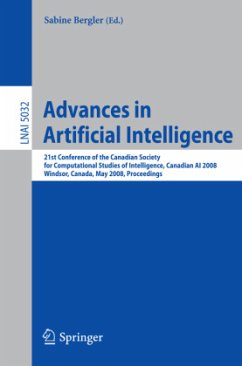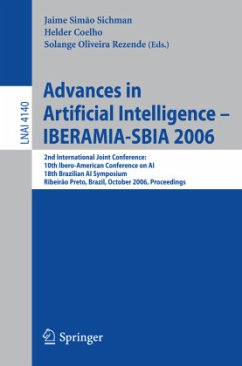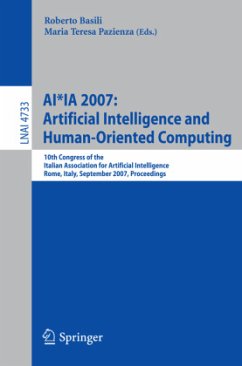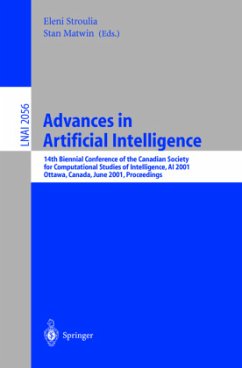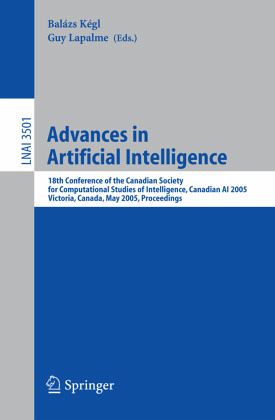
Advances in Artificial Intelligence
18th Conference of the Canadian Society for Computational Studies of Intelligence, Canadian AI 2005, Victoria, Canada, May 9-11, 2005, Proceedings
Herausgegeben: Kégl, Balázs; Lapalme, Guy

PAYBACK Punkte
20 °P sammeln!
The 18th conference of the Canadian Society for the Computational Study of Intelligence (CSCSI) continued the success of its predecessors. This set of - pers re?ects the diversity of the Canadian AI community and its international partners. AI 2005 attracted 135 high-quality submissions: 64 from Canada and 71 from around the world. Of these, eight were written in French. All submitted papers were thoroughly reviewed by at least three members of the Program Committee. A total of 30 contributions, accepted as long papers, and 19 as short papers are included in this volume. We invited three disti...
The 18th conference of the Canadian Society for the Computational Study of Intelligence (CSCSI) continued the success of its predecessors. This set of - pers re?ects the diversity of the Canadian AI community and its international partners. AI 2005 attracted 135 high-quality submissions: 64 from Canada and 71 from around the world. Of these, eight were written in French. All submitted papers were thoroughly reviewed by at least three members of the Program Committee. A total of 30 contributions, accepted as long papers, and 19 as short papers are included in this volume. We invited three distinguished researchers to give talks about their current research interests: Eric Brill from Microsoft Research, Craig Boutilier from the University of Toronto, and Henry Krautz from the University of Washington. The organization of such a successful conference bene?ted from the coll- oration of many individuals. Foremost, we would like to express our apprec- tion to the Program Committee members and external referees, who provided timely and signi?cant reviews. To manage the submission and reviewing process we used the Paperdyne system, which was developed by Dirk Peters. We owe special thanks to Kellogg Booth and Tricia d'Entremont for handling the local arrangementsandregistration.WealsothankBruceSpencerandmembersofthe CSCSI executive for all their e?orts in making AI 2005 a successful conference.





